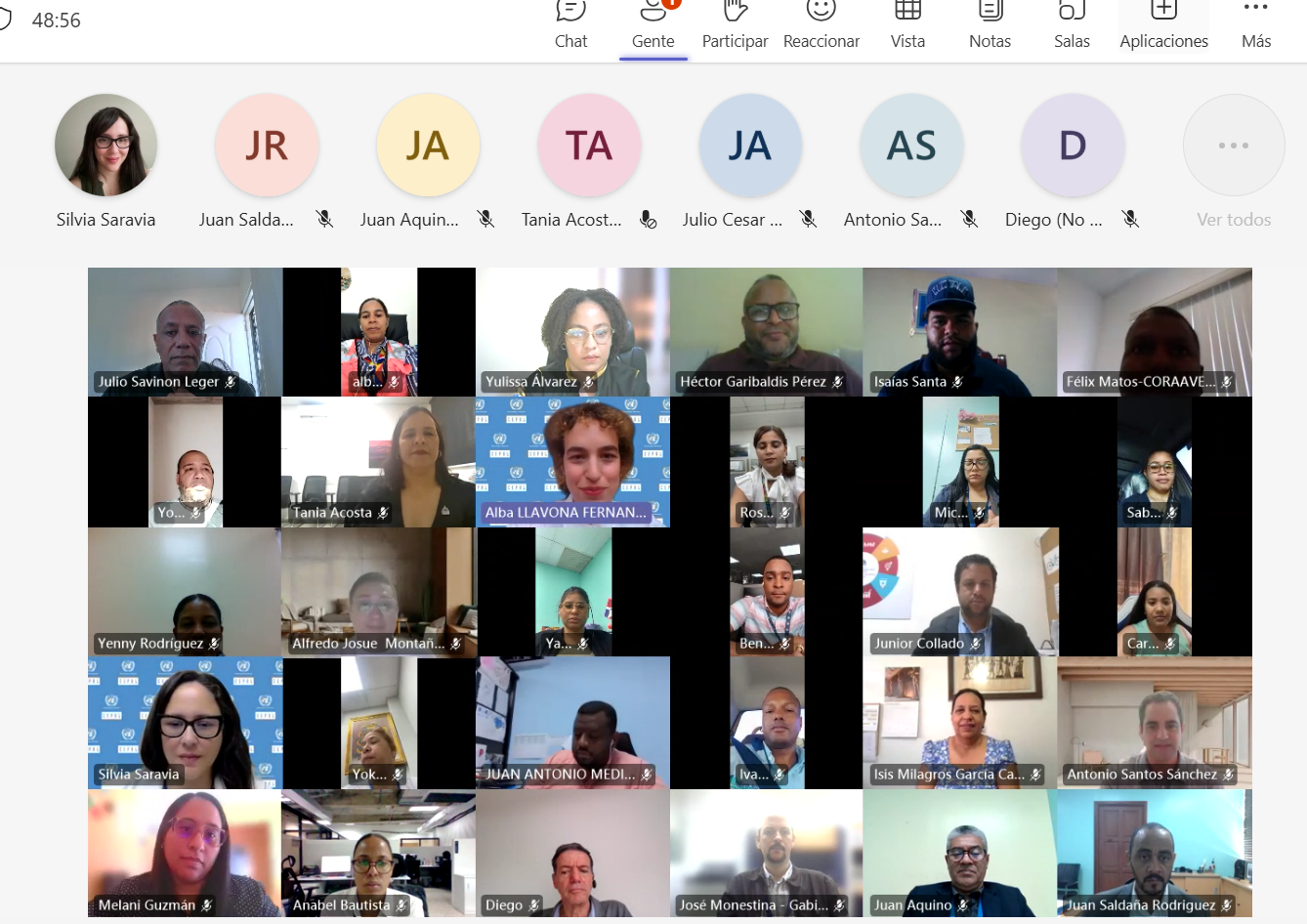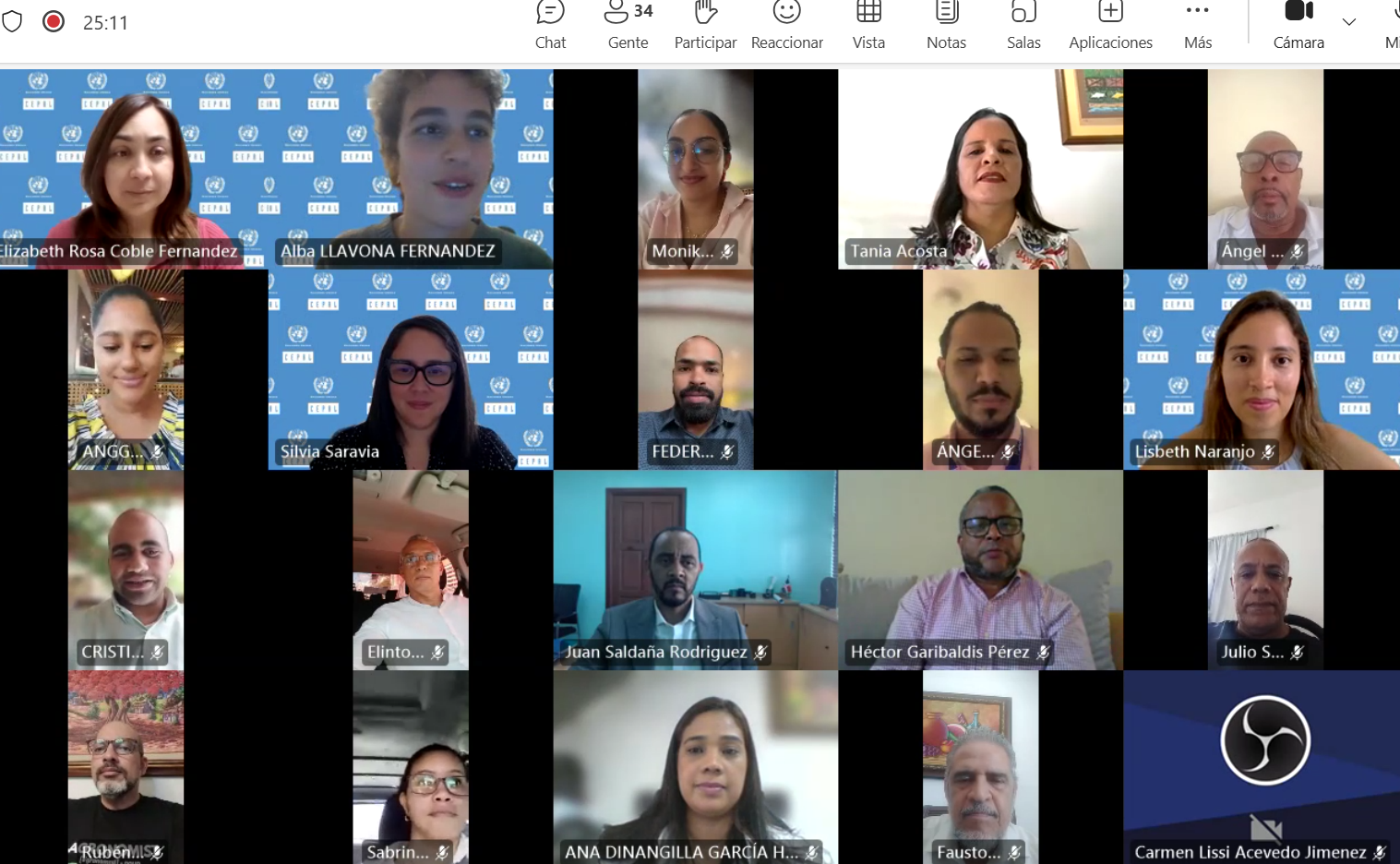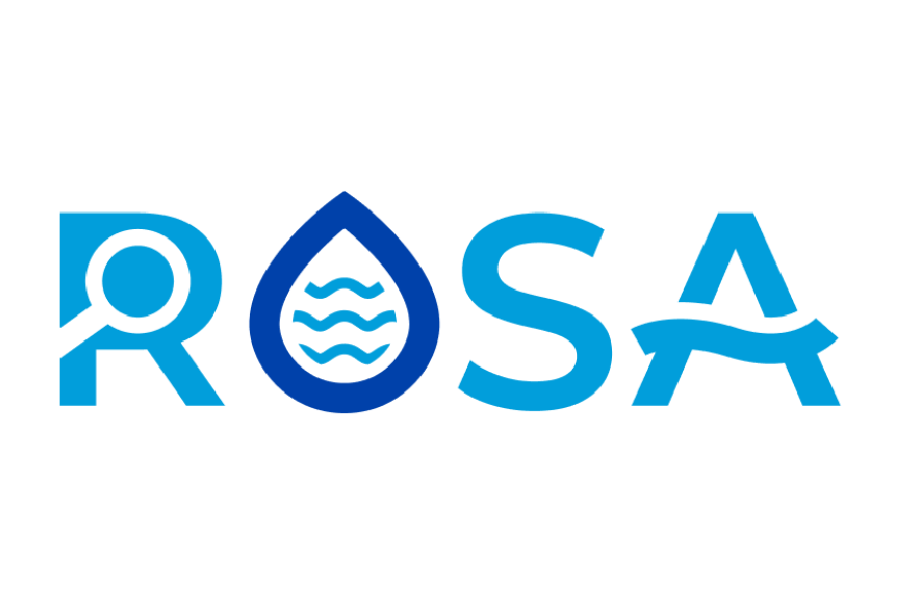Sixth Online Training Session within the Framework of the ROSA Project (Network and Observatory for Water Sustainability) for the Dominican Republic: Circular Economy, Methane, and Indicators in Water Management
Work area(s)
Topic(s)
The Natural Resources Division of ECLAC conducted the sixth online training session for members of government institutions in the Dominican Republic, as part of the ROSA Project (Network and Observatory for Water Sustainability). This session explored the concept of the circular economy from an environmental perspective, examining the impact of wastewater treatment on climate change and global warming. It also highlighted the potential of circular systems to contribute to climate mitigation efforts and to promote a more sustainable approach to water resource management.

The Natural Resources Division of the Economic Commission for Latin America and the Caribbean conducted the sixth and final online training session of the ROSA Project (Network and Observatory for Water Sustainability), focused on three key themes:
1. Circular economy in water and sanitation,
2. Methane emissions and recovery, and
3. Indicators for sustainable water management.
The session began with a presentation by Pedro Chavarro, ECLAC expert, who addressed the issue of methane emissions in the water and sanitation sector. He explained that methane has a global warming potential 84 times greater than CO₂ over a 20-year period, making it a critical greenhouse gas for climate mitigation. He also shared examples from the region of wastewater treatment plants (WWTPs) that have implemented biogas capture and utilization strategies, enabling electricity generation and emissions reductions.
Next, Diego Fernández, senior expert at ECLAC, discussed how the circular economy can contribute to climate change mitigation in the water and sanitation sector. He highlighted the transformative potential of wastewater as a resource, emphasizing opportunities for water reuse, methane recovery for energy, and nutrient extraction. Fernández noted that 99.8% of wastewater can be reused with adequate treatment, with key applications in agricultural irrigation, industrial processes, and aquifer recharge.
Following this, Antonio Sánchez, another ECLAC expert, presented on the use of indicators to support efficient water and sanitation management, aligned with the Sustainable Development Goals (SDGs)—particularly SDG 6 (Clean Water and Sanitation). He identified essential indicators such as energy intensity in water treatment and physical and commercial water loss indexes, which are vital for assessing efficiency and sustainability. He also emphasized the need to incorporate environmental and circular economy indicators into utility operations to promote more responsible, sustainable practices. These indicators, he noted, are key for improving operational management, attracting green finance, and strengthening both the economic and environmental sustainability of water systems.
The session concluded with a dynamic Q&A segment, allowing participants to share experiences, ask questions, and reflect collectively—fostering a rich exchange of knowledge and practical insights.
This event marked the conclusion of the ROSA Project’s online training cycle for the Dominican Republic, representing a milestone in capacity building and the promotion of sustainable practices for integrated water resource management across the region.
Related content

The Virtual Capacity Building Cycle of the ROSA Project in the Dominican Republic has Concluded: Strengthening Capacities for Sustainable Water Management
With the sixth and final session held on February 24, the online capacity building cycle organized by ECLAC within the framework of the ROSA Project (Network and Observatory for Water…

Fifth Online Training Session within the Framework of the ROSA Project (Network and Observatory for Water Sustainability) for the Dominican Republic: Water Valuation – Schools of Economic Thought, Pricing, Costs, and Value
The Natural Resources Division of ECLAC held the fifth online training session for members of government institutions in the Dominican Republic,…

Fourth Virtual Capacity Building Session within the Framework of the ROSA Project (Network and Observatory for Water Sustainability) for the Dominican Republic: The Water Convention – Challenges and Opportunities in the Dominican Republic
In the virtual meeting on transboundary water management, experts and representatives from international organizations analyzed the challenges and opportunities related to the …
